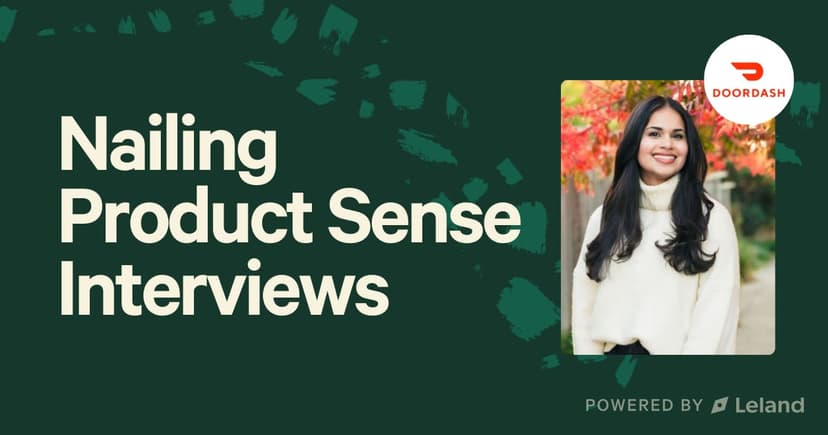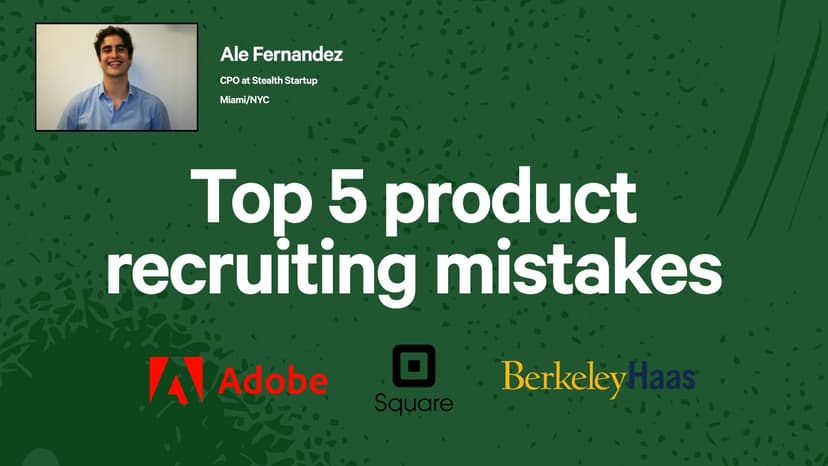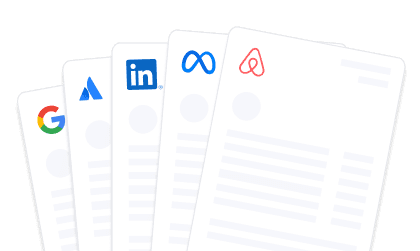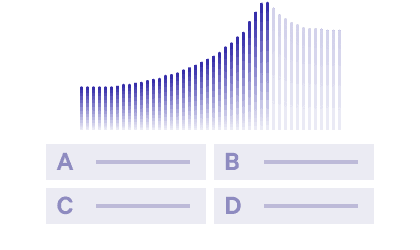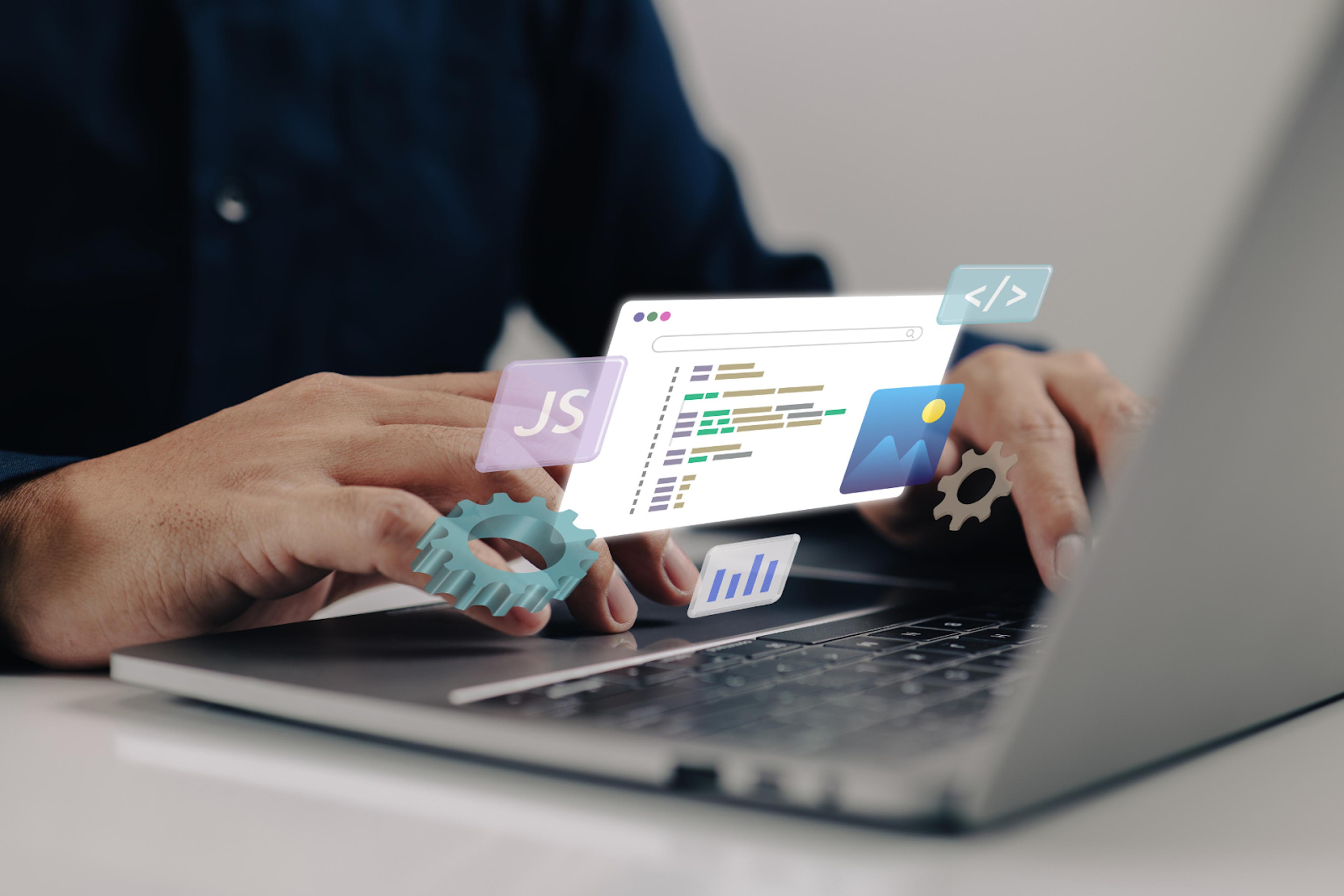Product Execution Interview: What It Is, Questions, & Tips
Learn how to ace the product execution interview with common product execution interview questions, sample answers, and expert preparation tips.
Posted September 9, 2025

Join a free event
Learn from top coaches and industry experts in live, interactive sessions you can join for free.
Table of Contents
The product execution interview is a crucial part of the hiring process for roles like product manager. Hiring managers would want to see if you can measure success, handle metric change, and keep focus on both business outcomes and personal user needs.
During an execution interview, candidates are expected to:
- Define success in clear terms.
- Use metrics like daily active users, newly registered users, and top-line metrics.
- Show how they would identify and solve the root causes of problems.
- Explain trade-offs between different paths.
Core Areas of Focus in Execution Interviews
Setting Success Metrics
You’ll often be asked to define success with numbers. That means picking the right success metrics or key metrics.
Examples include:
- Daily active users (DAU)
- Newly registered users
- User engagement by segment
- Top-line metrics like revenue or retention
Example Questions You Might Face
Here are some common meta execution interview questions and sample questions from Facebook PM interviews and Google:
Sample Question: How would you measure success for a new messaging feature?
Sample answer: I’d track success metrics like daily active users, number of messages sent, and adoption by newly registered users. I’d also compare across user segments to see if the feature improves user engagement and connects to top-line metrics like retention.
Expert Tip: Always explain why the key metrics you choose matter to the product’s goals.
Sample Question: What would you do if active users dropped 20% over a time period?
Sample answer: I’d run root cause analysis by checking which user segments were affected, then look for root causes like technical errors, a bad release, or changes in personal user needs. From there, I’d recommend fixes or a quick B test.
Expert Tip: Go beyond saying you’d “check the data”. Show a clear path from identifying the drop to solving it.
Sample Question: How would you handle a trade-off between short-term revenue and personal user needs?
Sample answer: I’d define the trade-off and compare success metrics on both sides, like top line revenue versus daily active users. I’d explain to the team why I’d prioritize user trust for long-term growth, while testing revenue options carefully.
Expert Tip: Show balance. Acknowledge both the business case and the personal user needs.
Sample Question: Design an A/B test to evaluate whether a redesign improves user engagement.
Sample answer: I’d set measurable goals such as session length or messages sent, then split users into old vs. new design groups. Over a set time period, I’d compare success metrics to see if engagement improves without hurting top-line metrics.
Expert Tip: Keep your A/B test explanation simple and define the metric, the groups, and how you’ll measure success.
Read: How to Prepare for Your Product Management Interview
Frameworks and Approaches for Execution Interviews
Root Cause Analysis
A practical way to handle metric change is to break the problem into smaller parts. Refer to this column:
| Root Cause Analysis | Example |
|---|---|
| Metric | Daily active users |
| Drop seen in | Newly registered users |
| Possible root causes | Sign-up errors, confusing onboarding, and poor value delivery |
Expert Tip: Always tie your root cause back to clear success metrics so progress is measurable.
Metrics Framework
Hiring managers expect you to work with a comprehensive set of metrics:
North Star Metric
A north star metric shows the long-term success of your product. It is the main signal of whether your product is creating real value for users, like weekly active users.
Read: The North Star Framework: How to Define and Achieve Product Success
Top-line Metrics
This shows the overall health of the business, such as revenue, retention, or total active users. These give hiring managers a sense of whether the product is moving in the right direction financially and strategically.
Supporting success metrics
Supporting success metrics are the smaller numbers that track specific actions users take, like click-through rates or messages sent. They explain why the north star and top line metrics are changing.
Example table:
| Metric Type | Example Metric | Why It Matters |
|---|---|---|
| North star | Weekly active users | Shows product adoption |
| Top line | Revenue per user | Connects to business success |
| Supporting | Feature click-through | Tracks specific user engagement |
Trade Off and Prioritization Framework
When asked about trade-offs, you can use a step-by-step method:
- Define the context.
- Compare the impact on users and top-line metrics.
- Explain how you’d decide and what success metrics you’d track.
For Example:
Say you’re a product manager for a messaging app, and the company wants to add more ads. The trade-off is that ads might reduce user engagement. You’d define the context by pointing out the revenue goal, then compare the impact on daily active users and retention. To decide, you’d run an A/B test and track success metrics like messages sent, session length, and revenue per user. If revenue grows without hurting north star metrics, you’d move forward. If engagement drops, you’d scale back.
How Tech Companies Use Execution Interviews
Meta or Facebook
At Meta, this is often called the Analytical Thinking round. Meta interviewers test whether you can work with success metrics, handle metric change, and explain trade-offs. Insights from ex-Facebook PM candidates show that many Facebook PM interviews focus on DAU, growth, and user engagement.
Google places a strong focus on B-test design, north star metrics, and regular basis measurement. You may get asked to design experiments and show how you would measure success for features across user segments.
Other Tech Companies
Across major tech companies, the execution interview is an important part of the process. Whether it’s Meta, Google, or others, the goal is the same: test your ability to make decisions with data, balance trade-offs, and show a strong understanding of product health.
Preparation Tips and Practice Strategies
Practice With Mock Interviews
The best way to get ready for an execution interview is to do practice runs. Try going through product execution questions with a peer, mentor, or coach. Their feedback will help you polish your answers and feel more confident when explaining metrics.
How to Build Confidence
Confidence comes from the practice you do regularly. Try solving sample questions often, and don’t just think through the answers. Write them out so you can spot gaps in your reasoning. Then, practice saying your answers out loud, as if you’re explaining your thought process to a team. Over time, this helps you sound natural and stay focused under pressure.
Common Mistakes to Avoid
A few patterns tend to trip up candidates in execution interviews. One is ignoring the context of the question and jumping straight to an answer. Another is choosing vague metrics instead of clear success metrics that show how you’ll measure progress. And a third is overlooking user segments or personal user needs, which makes your answer sound incomplete. Paying attention to these areas will help your responses stand out.
Read: Product Execution Interview Guide
Final Checklist for Candidates
Before your next pm interview, ask yourself:
- Did I define success with clear success metrics?
- Did I set measurable goals linked to key metrics?
- Did I identify possible root causes for any metric change?
- Did I explain trade-offs in a clear way?
- Did I show the ability to use data to guide decisions?
Read: The Best Newsletters & Podcasts for Product Management
5 Expert Tips to Master the Product Execution Interview
1. Anchor Every Answer in Metrics That Connect to the Business
Interviewers want to see if you understand which numbers actually matter. For example, if you’re talking about user engagement, connect smaller actions like clicks or shares to a north star metric such as weekly active users. Then explain how that ties into top-line metrics like revenue or retention. Showing this link demonstrates that you can zoom out from the details and show how a product manager drives business outcomes.
2. Show How You Would Segment Users Before Acting
One mistake candidates make is treating all users as one group. In practice, most metric changes affect only certain user segments. Instead of saying, “Daily active users dropped by 20%,” say, “The drop was sharpest among newly registered users, while returning users were stable.” That shift shows you’re breaking the problem down with root cause analysis instead of jumping to conclusions.
3. Balance Trade-offs by Framing the Risk Clearly
When you’re given a trade-off scenario like choosing between short-term revenue and long-term personal user needs, don’t just pick one. A stronger move is to frame the risk of each option in clear terms. For example, “More ads will raise revenue this quarter, but if daily active users fall, we lose long-term trust.” Then outline how you’d test your choice, such as with an A/B test. This shows hiring managers that you can think like a leader who balances business and user priorities.
4. Practice Thinking Out Loud, Not Just Writing Answers
Many candidates rehearse by writing answers, but the real skill in pm interviews is explaining your thinking out loud. Interviewers want to hear how you move from context to decision. For example, start with “First, I’d confirm the time period for this drop,” then move into metrics and potential solutions. Practicing out loud will help you sound confident and structured under pressure.
5. Add a Forward-Looking Step to Stand Out
Most people stop at answering the interview question. To stand out, add a “what next” layer. For example, after diagnosing a drop in active users, suggest building an internal system that alerts the team when a key metric shifts again. This extra step proves you’re not just solving today’s problem, but you are also thinking like a product manager who prepares for issues before they happen.
The Bottom line
The product execution interview is designed to test more than your ideas and turn those ideas into measurable outcomes. Interviewers want to see if you can think clearly under pressure, make sound decisions with data, and balance the needs of the business with the needs of the user. Preparing with practice questions, refining your ability to explain trade-offs, and building confidence through mock interviews will give you an edge. Remember, the strongest candidates don’t just react to problems but rather show how they would guide a product forward with clarity and purpose.
Ready for your Interview?
Prepare for your execution interview and practice with the right support. At Leland, you can work with our expert coaches, do mock interviews, and get tailored feedback to improve your answers. Whether you’re preparing for Facebook PM interviews, Google, or other tech companies, our resources will help you build confidence and succeed!
You can also read these:
- Top 20 APM Programs (2025)
- How to Nail the Atlassian APM Interview
- How to Get Into the Meta RPM Program (2025)
- How to Get Into the Google APM Program (2025)
- How to Get Into the Uber APM Program (2025)
- How to Get Into the Yahoo APM Program (2024)
FAQs
What is a product execution interview?
- Think of it as the part of the interview where ideas meet reality. Instead of asking what feature you’d build, the interviewer wants to see how you’d measure whether it’s working, what you’d do if the numbers drop, and how you’d balance tough trade-offs. It’s about proving you can manage a live product, not just brainstorm.
How to prepare for a product operations interview?
- Start by brushing up on the day-to-day work. Things like improving processes and keeping projects on track. Be ready to share examples of how you’ve organized workflows or solved bottlenecks in the past. Practicing with a mentor or peer can help you explain your approach in a way that feels natural.
What is the 30-60-90 question in an interview?
- This question is really asking, “How would you settle into the role?” In the first 30 days, you’d focus on learning the product and team. By 60 days, you’d start contributing to projects, and by 90, you’d aim to own bigger responsibilities. Interviewers want to see that you’re thinking about both learning and impact.
Is Cracking the PM Interview still relevant?
- Yes. It is still a great book for understanding the basics of product interviews. But the way companies interview has shifted, with more focus on execution, metrics, and trade-offs. Use the book as a foundation, then layer on newer resources and plenty of practice to feel truly prepared.





